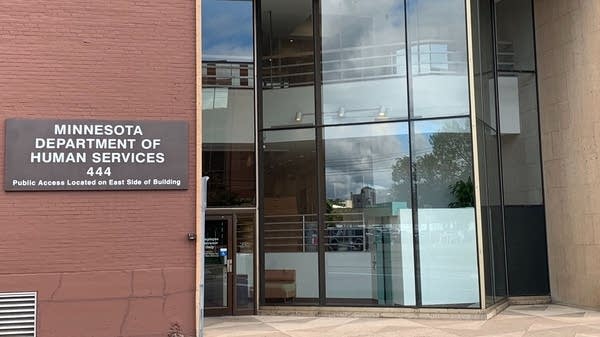Minnesota counties say they won't reimburse DHS for $9M in overpayments
County budgets already set; some officials say they don't have extra money available

Go Deeper.
Create an account or log in to save stories.
Like this?
Thanks for liking this story! We have added it to a list of your favorite stories.
Minnesota counties are refusing to reimburse the state for nearly $9 million in overpayments of federal funds because they say the state — not the counties — made the mistake.
County budgets are already set for the year, and some officials say they don’t have extra money available to pay the state Department of Human Services back.
The spending was related to substance abuse treatment. The bills range from $46 on the low end for Dodge County to nearly $2.2 million for the state’s most populous county, Hennepin.
St. Louis County in northeastern Minnesota was hit particularly hard by the overpayment issue because it has a large population in need of substance abuse treatments. The county is on the hook for nearly $700,000.
Turn Up Your Support
MPR News helps you turn down the noise and build shared understanding. Turn up your support for this public resource and keep trusted journalism accessible to all.
“It’s a chunk of change,” said St. Louis County Board Commissioner Patrick Boyle. “It’d be three or four plow trucks, with us getting 22 inches of snow this last week and essentially shutting our county down. It’s significant. It’s seven or eight social workers we could have out in the field.”
The repayments will soon start showing up on the county’s monthly bills to DHS, as the agency faces an end-of-year deadline to pay the federal government back. St. Louis County sent a letter to DHS this week saying they “will not be considering repayment of these costs at this time,” and Boyle is encouraging all of Minnesota’s 86 other counties to do the same.
The improper payments were made for substance abuse disorder treatments at facilities that were previously known as “institutes of mental disease.” The problem is they weren’t eligible for federal funds, and in May the Centers for Medicare and Medicaid Services told DHS to immediately stop the payments. The total overpayments hit $61 million, and DHS says the counties are responsible for paying back $8.8 million of that.
It’s part of a series of payment mistakes discovered by the agency this year totaling more than $100 million. Some of the payment problems date back decades.
“It’s hard to pass a bill on to someone who has no fault in the problem and no way to control it,” said Jennifer DeCubellis, deputy county administrator for Hennepin County. “I have a responsibility to the county board that I have a budget that works. If I’m expected to pay this back, that means I'm going to have to cut services to Hennepin County residents.”
She said the county has already proposed $20 million in cuts to make its 2020 budget work. The county will pay continue to pay its regular monthly bills to DHS for services, but she said they won’t send funds for the overpayment issues if they’re billed.
Minnesota law requires the department to claw back federal money when an overpayment occurs. DHS sent a response to counties this week asking them to provide written notice if they can’t reimburse the state by the end of the year and “offer a timeline for when invoices will be paid.”
DHS officials say they’re working to repair relationships with the counties, but they also have to follow the law.
“We are under obligations from our federal funders to reconcile those claims by the end of the year,” said Interim Assistant DHS Commissioner Stacy Twite. “Counties usually see invoices for these services as they would on a routine basis every month.”
In a separate issue, the state overpaid two tribes, the White Earth Nation and the Leech Lake Band of Ojibwe, $29 million for substance abuse and opioid addiction treatments. The state wants that money paid back too.
“I just talked to my folks at Sherburne County and what their share is, they don’t have the money. They could turn their pockets inside out, but they don’t have their share of $8.8 million,” said Nick Zerwas, a departing Republican House member who represents several counties in central Minnesota.
“At the end of the day, at the bottom line, when someone has to cut a check to pay that back, the tribes don’t have that money, the counties don’t have that money, the state is going to be left holding the bag at the end of the day.”
Some county officials say lawmakers should use the state’s projected $1.3 billion budget surplus to cover the overpayment costs for counties and tribes, as well as set up a better system going forward so mistakes made by the state aren’t a burden on counties. They don’t expect this to be the last payment issue they face with the state.
That includes changing the law that requires DHS to seek repayment in these situations.
“We expect there will be more of these things found as DHS is working to get their books in order,” said Julie Ring, executive director of the Association of Minnesota Counties.
“We’d like the Legislature to think of a structure, not just a one-time relief for this thing or that thing, but a structure by which these things can be covered.”
Dear reader,
Political debates with family or friends can get heated. But what if there was a way to handle them better?
You can learn how to have civil political conversations with our new e-book!
Download our free e-book, Talking Sense: Have Hard Political Conversations, Better, and learn how to talk without the tension.



